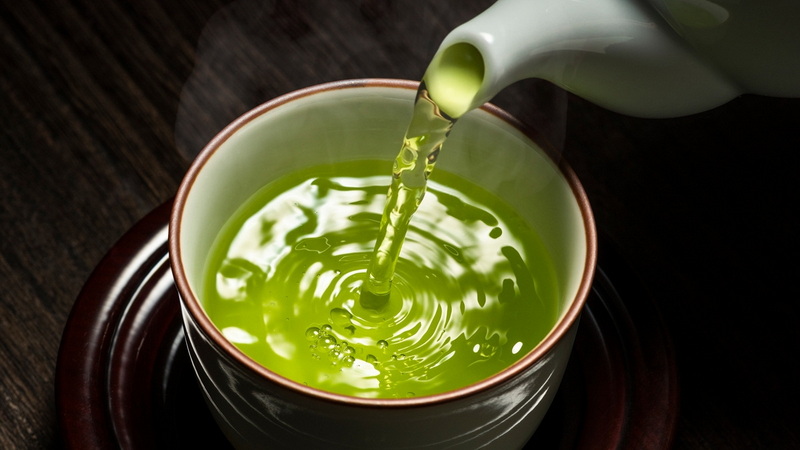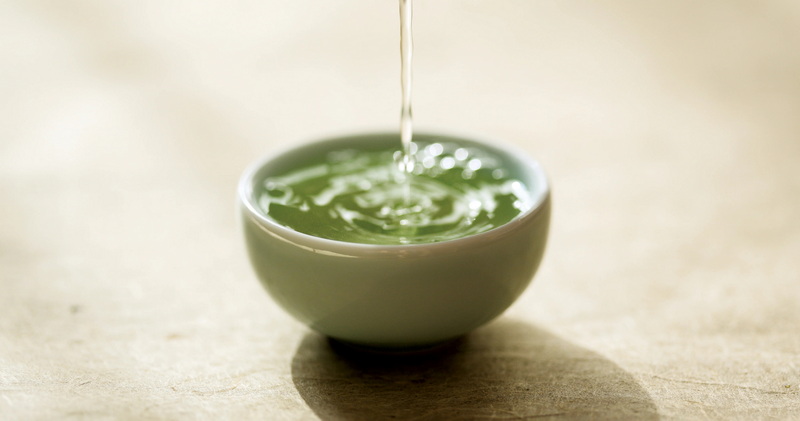Content Menu
● Understanding Green Tea Extract
● Exploring L-Theanine
● Key Differences Between Green Tea Extract and L-Theanine
● How L-Theanine and Green Tea Extract Interact
● The Science Behind Green Tea Extract and L-Theanine
● Practical Applications and Considerations
● Further Research and Emerging Studies
● Extraction and Synthesis of L-Theanine
● Functional Beverage
● Conclusion
● FAQ
>> 1. Can L-theanine be taken with green tea extract?
>> 2. Is it better to take L-theanine in the morning or at night?
>> 3. Are there any side effects of taking L-theanine?
>> 4. How much L-theanine should I take?
>> 5. Can L-theanine help with anxiety?
● Citations:
Green tea has been consumed for centuries and is well-known for its various health benefits. Many of these benefits are attributed to the unique compounds found in green tea, including green tea extract and L-theanine. While both are derived from the same plant, Camellia sinensis, they are not the same. This article delves into the differences between green tea extract and L-theanine, their individual benefits, and how they contribute to overall health.

Understanding Green Tea Extract
Green tea extract is a concentrated form of green tea, made by extracting the active compounds from the leaves. This extract is rich in polyphenols, particularly catechins, with epigallocatechin gallate (EGCG) being the most abundant and well-studied.
Composition of Green Tea Extract
- Polyphenols: These are antioxidants that help protect the body against damage from free radicals.
- Catechins: A subgroup of polyphenols, with EGCG being the most potent.
- Caffeine: A stimulant that can enhance alertness and focus.
- Other Compounds: Green tea extract also contains other beneficial compounds like flavonoids and amino acids.
Health Benefits of Green Tea Extract
1. Antioxidant Properties: Polyphenols in green tea extract neutralize free radicals, reducing oxidative stress and inflammation.
2. Heart Health: Green tea extract can improve heart health by lowering blood pressure, reducing cholesterol levels, and improving blood vessel function.
3. Weight Management: It may aid in weight loss by boosting metabolism and increasing fat burning.
4. Brain Function: Green tea extract can enhance cognitive function and protect against neurodegenerative diseases.
5. Cancer Prevention: Some studies suggest that green tea extract may help prevent certain types of cancer due to its antioxidant and anti-inflammatory effects.
Exploring L-Theanine
L-Theanine is a unique amino acid found primarily in tea leaves, including green tea. It is known for its ability to promote relaxation without causing drowsiness.
Properties of L-Theanine
- Amino Acid: L-Theanine is a non-protein amino acid, meaning it is not used to build proteins in the body.
- Relaxation: It promotes relaxation by increasing alpha brain wave activity.
- Mood Enhancement: L-Theanine can improve mood and reduce symptoms of anxiety and stress.
- Cognitive Function: It enhances cognitive function, particularly when combined with caffeine.
Health Benefits of L-Theanine
1. Stress Reduction: L-Theanine helps manage stress by promoting relaxation and reducing anxiety levels.
2. Improved Focus: It can enhance focus and concentration, especially when paired with caffeine.
3. Better Sleep: L-Theanine promotes relaxation, which can lead to improved sleep quality.
4. Neuroprotection: It has neuroprotective properties, potentially guarding against age-related cognitive decline.
5. Blood Pressure Control: L-Theanine may help lower blood pressure in individuals experiencing stress.
Key Differences Between Green Tea Extract and L-Theanine
| Feature | Green Tea Extract | L-Theanine |
| Composition | Polyphenols, catechins, caffeine, flavonoids | Amino acid |
| Primary Benefit | Antioxidant, heart health, weight management | Relaxation, focus, stress reduction |
| Caffeine Content | High | None |
| Overall Effect | Stimulating and antioxidant | Calming and cognitive-enhancing |
How L-Theanine and Green Tea Extract Interact
L-Theanine and green tea extract can work synergistically to provide enhanced health benefits. The caffeine in green tea extract can boost alertness and cognitive function, while L-theanine mitigates the potential negative effects of caffeine, such as anxiety and jitters. This combination results in a balanced state of enhanced focus and relaxation.
The Science Behind Green Tea Extract and L-Theanine
To further understand the benefits, let's delve into the scientific mechanisms through which these compounds operate.
Green Tea Extract: The Power of Polyphenols
Polyphenols, particularly catechins such as EGCG, are the cornerstone of green tea extract's health benefits. These compounds are potent antioxidants, scavenging free radicals that can damage cells and contribute to chronic diseases.
- Antioxidant Action: EGCG donates electrons to free radicals, neutralizing them and preventing them from causing oxidative stress. This action helps protect cells from damage, reducing the risk of diseases like heart disease, cancer, and neurodegenerative disorders.
- Anti-Inflammatory Effects: Green tea extract can also reduce inflammation by inhibiting inflammatory pathways in the body. Chronic inflammation is linked to numerous health problems, and reducing it can improve overall health.
- Metabolic Enhancement: Studies have shown that green tea extract can boost metabolism and increase fat burning. EGCG appears to inhibit enzymes that break down norepinephrine, a hormone that helps regulate metabolism. By increasing norepinephrine levels, green tea extract can promote thermogenesis and fat oxidation.
- Cardiovascular Benefits: Green tea extract supports heart health by lowering blood pressure, reducing cholesterol levels, and improving blood vessel function. It can also prevent the oxidation of LDL cholesterol, which is a key factor in the development of atherosclerosis.
L-Theanine: The Relaxation and Focus Booster
L-Theanine is unique in its ability to promote relaxation without causing drowsiness. This effect is achieved through several mechanisms in the brain.
- Alpha Brain Wave Activity: L-Theanine increases alpha brain wave activity, which is associated with a state of relaxed alertness. This state is conducive to creativity, focus, and problem-solving.
- Neurotransmitter Modulation: L-Theanine affects the levels of neurotransmitters in the brain, including GABA, dopamine, and serotonin. GABA is an inhibitory neurotransmitter that promotes relaxation, while dopamine and serotonin are associated with mood and well-being. By modulating these neurotransmitters, L-Theanine can reduce anxiety and improve mood.
- Neuroprotective Effects: L-Theanine has neuroprotective properties, potentially protecting against age-related cognitive decline. It can reduce glutamate-induced excitotoxicity, which is a process that can damage brain cells.
- Caffeine Synergy: L-Theanine works synergistically with caffeine to enhance cognitive function. Caffeine can improve alertness and focus, but it can also cause anxiety and jitters in some people. L-Theanine can mitigate these negative effects, resulting in a balanced state of enhanced focus and relaxation.
Practical Applications and Considerations
When considering incorporating green tea extract and L-Theanine into your daily routine, several factors should be taken into account to ensure safety and maximize benefits.
Dosage and Administration
- Green Tea Extract: The appropriate dosage of green tea extract can vary depending on the individual and the specific product. However, a typical dose ranges from 300 to 500 mg per day. It is important to choose a high-quality extract that is standardized to contain a specific percentage of EGCG.
- L-Theanine: The recommended dosage of L-Theanine typically ranges from 50 to 200 mg per day. It can be taken as a single dose or divided into multiple doses throughout the day.
- Timing: Green tea extract is often taken in the morning or early afternoon due to its caffeine content. L-Theanine can be taken at any time of day, depending on the desired effect. If taken for relaxation, it can be taken in the evening. If taken for focus, it can be taken in the morning or early afternoon.
Potential Side Effects
- Green Tea Extract: The potential side effects of green tea extract are mainly related to its caffeine content. These can include anxiety, insomnia, and digestive upset. High doses of green tea extract may also cause liver problems in rare cases.
- L-Theanine: L-Theanine is generally considered safe, and side effects are rare. Some people may experience mild side effects such as headache or stomach upset.
Interactions with Medications
It is important to consult with a healthcare professional before taking green tea extract or L-Theanine, especially if you are taking medications. Green tea extract can interact with certain medications, such as blood thinners and medications for heart conditions. L-Theanine may interact with medications that affect brain neurotransmitters.
Choosing Quality Supplements
When choosing green tea extract and L-Theanine supplements, it is important to select high-quality products from reputable manufacturers. Look for products that are third-party tested for purity and potency. Also, check the ingredient list to ensure that the product does not contain any unnecessary additives or fillers.
Further Research and Emerging Studies
The scientific community continues to explore the potential benefits of green tea extract and L-Theanine. Recent studies have investigated their roles in various health conditions and potential applications.
- Green Tea Extract and Cancer: Emerging research suggests that green tea extract may have a role in cancer prevention and treatment. Studies have investigated its effects on various types of cancer, including breast cancer, prostate cancer, and colon cancer.
- L-Theanine and Cognitive Function: Recent studies have examined the effects of L-Theanine on cognitive function, particularly in combination with caffeine. These studies have found that L-Theanine can improve attention, memory, and executive function.
- Green Tea Extract and Metabolic Health: Research has continued to explore the effects of green tea extract on metabolic health. Studies have found that it can improve insulin sensitivity, reduce blood sugar levels, and promote weight loss.
- L-Theanine and Mental Health: Emerging research suggests that L-Theanine may have a role in the treatment of mental health conditions such as anxiety and depression. Studies have found that it can reduce symptoms of anxiety and improve mood.
Extraction and Synthesis of L-Theanine
L-theanine can be obtained through extraction from tea leaves or synthesized using specific bacterial enzymes. The source of L-theanine, whether natural or synthetic, can be distinguished through carbon stable isotope ratio analysis.
Functional Beverage
L-theanine produces a feeling of relaxation without sedation with doses from 50 to 200 mg, which takes effect approximately 30 minutes after administration. One study found that only one tea brand of those tested could be considered a functional beverage with regard to L-theanine, as two cups provided an effective dose.
Conclusion
While both green tea extract and L-theanine are derived from green tea, they offer distinct benefits and have different compositions. Green tea extract is rich in antioxidants and provides stimulating effects, whereas L-theanine promotes relaxation and enhances cognitive function without stimulation. They can be used together to harness their synergistic effects, providing a balanced approach to health and wellness.

FAQ
1. Can L-theanine be taken with green tea extract?
Yes, L-theanine can be taken with green tea extract. The combination can provide synergistic benefits, enhancing focus and relaxation without the anxiety sometimes associated with caffeine.
2. Is it better to take L-theanine in the morning or at night?
L-theanine can be taken at any time of day. For improved focus and reduced anxiety, it can be taken in the morning. To promote relaxation and better sleep, it can be taken in the evening.
3. Are there any side effects of taking L-theanine?
L-theanine is generally considered safe. Some people may experience mild side effects such as headache or stomach upset, but these are rare.
4. How much L-theanine should I take?
The typical dosage of L-theanine ranges from 50 to 200 mg per day. It is best to start with a lower dose and adjust as needed.
5. Can L-theanine help with anxiety?
Yes, L-theanine has been shown to reduce symptoms of anxiety and promote relaxation. It can be a natural alternative for managing stress and anxiety.
Citations:
[1] http://www.scielo.cl/scielo.php?script=sci_arttext&pid=S0717-97072013000400057
[2] https://pmc.ncbi.nlm.nih.gov/articles/PMC9014247/
[3] https://pmc.ncbi.nlm.nih.gov/articles/PMC4787341/
[4] https://pubmed.ncbi.nlm.nih.gov/31758301/
[5] https://pmc.ncbi.nlm.nih.gov/articles/PMC9261829/
[6] https://www.healthline.com/health/l-theanine
[7] https://www.researchgate.net/figure/Comparison-of-L-theanine-extracted-for-different-durations-and-at-different-temperatures_fig2_376288028
[8] https://cn.iherb.com/blog/l-theanine/1446





























